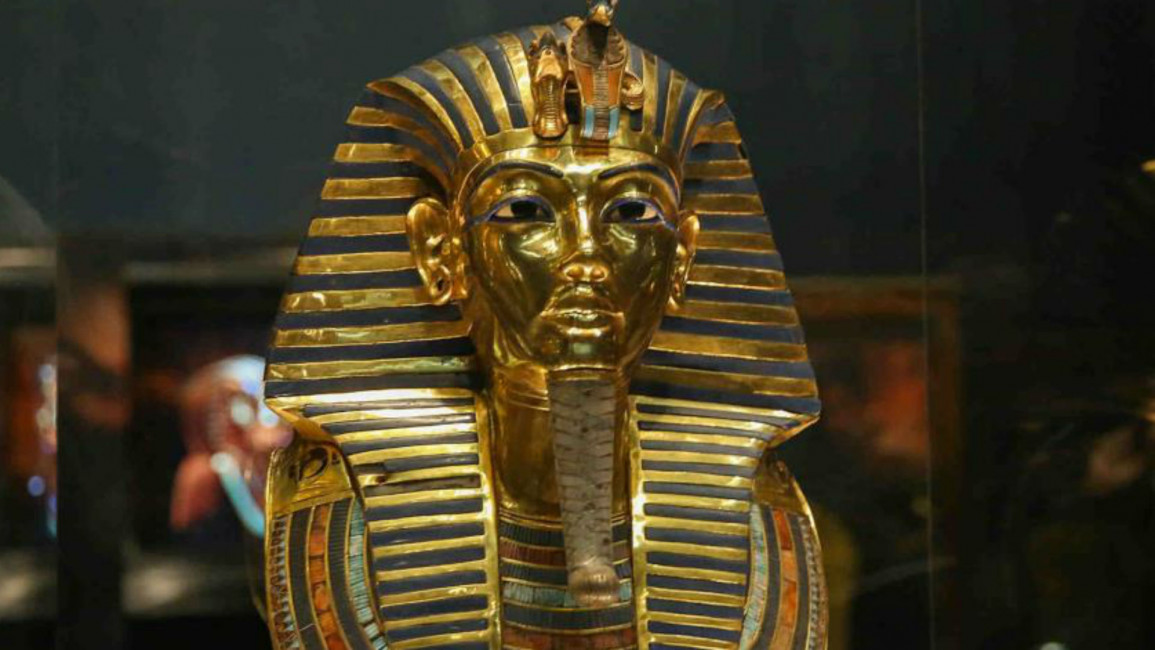Egypt slams illegitimate auction of 'stolen' Pharoah statue head
Egypt on Wednesday condemned a planned London auction by Christie's of a head from a statue of Pharoah Tutankhamun, which is set to proceed despite Cairo's concerns over paperwork.
Egypt's ambassador to the UK "regrets that the auction house intends to conduct a new sale involving Egyptian artefacts tomorrow (Thursday), including the head of Tutankhamun, without the backing of papers", said a joint statement by its foreign and antiquities ministries late on Wednesday.
"The auction house still has not furnished the papers with Egyptian authorities", the statement added.
Christie's expects the 28.5-centimetre (11-inch) brown quartzite relic from the Valley of the Kings to fetch more than £4 million ($5.1 million, 4.5 million euros).
The Egyptian statement said auctions of other ancient Egyptian items had taken place earlier on Wednesday, despite "legitimate Egyptian requests in recent weeks" centring on sales certificates.
The sales are "in contradiction with international agreements and conventions", the statement said.
The pharaoh's finely-chiselled head - its serene eyes and puffed lips emoting a sense of eternal peace - comes from the private Resandro Collection of ancient art that Christie's last sold in 2016 for £3 million.
"We would not offer for sale any object where there was concern over ownership or export," Christie's said in a recent statement released to AFP, noting that the Egyptian embassy had been notified in advance of the planned sale.
The French-owned British auction house explained that the current lot was acquired by Resandro from a Munich-based dealer in 1985.
It traces its prior origins to the 1973-74 acquisition by another dealer in Austria from the Princely House of Thurn and Taxis in modern-day Germany.
But little is known to the public about how the statue found its way to Europe.
"The Egyptian embassy in London requested the British foreign affairs ministry and the auction hall to stop the sale," Egypt's foreign ministry said on June 10.
Former antiquities minister Zahi Hawass told AFP on Sunday that the piece appears to have been "stolen" in the 1970s from the Karnak Temple complex of Egypt's great monuments.
"The owners have given false information," he said in a telephone interview.
"They have not shown any legal papers to prove its ownership."
'Legitimate market'
Tutankhamun is thought to have become a pharaoh at the age of nine and to have died about 10 years later.
His rule would have probably passed without notice were it not for the 1922 discovery by Britain's Howard Carter of his nearly intact tomb.
The lavish find revived interest in ancient Egypt and set the stage for subsequent battles over ownership of cultural masterpieces unearthed in colonial times.
International conventions and the British government's own guidance restrict the sale of works that were known to have been stolen or illegally dug up.
The British Museum has been wrangling for decades with Greece over its remarkable room full of marble Parthenon friezes and sculptures.
Egypt's own campaign to recover lost art gained momentum after numerous works went missing during the looting that accompanied former president Hosni Mubarak's fall from power in 2011.
The late Egyptian strongman turned the existing supreme council of antiquities into a separate ministry in the last year of his rule.
It has worked with the Los Angeles-based Getty Conservation Institute to mend Tutankhamun's tomb from the damage it sustained from swarming tourists over recent years.
The ministry also asked the UN cultural body UNESCO to halt Christie's sale.
But Egypt has been unable to substantiate its case with firm proof that the bust was illegally obtained.
The London auction house said in its defence that there was a "legitimate market for works of art of the ancient world in which Christie's has participated for generations".
Follow us on Twitter: @The_NewArab



